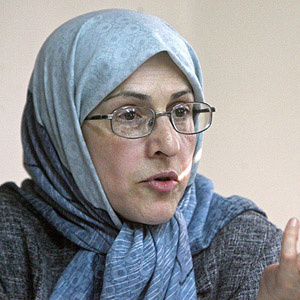Nagorno-Karabakh Cannot Pass Up Iran’s Potential To Resolve Disputes
Elaheh Koulayi.

On Friday, April 30, RIA Novosti quoted Russian Foreign Ministry spokesman Andrei Nesterenko as saying that his country is not against Iran’s proposal to hold trilateral talks involving Azerbaijan, Armenia, and Iran on the Nagorno-Karabakh dispute.
Since the breakdown of the Soviet Union and the birth of new political units in Central Asia and the Caucasus, the reinforcement of peace and security in these vulnerable regions has been high on the agenda for Iran. Despite propaganda spread by regional and global hostile entities, Tehran has always employed its potential and capacity to improve relations with the former Soviet republics, and tried to elevate itself to the position of a benevolent power vis-à-vis these countries.
Since the eruption of Nagorno-Karabakh clashes in the Caucasus between Azerbaijan and ethnic Armenians in late 1980s, Iran has tried to serve in the role of mediator and work toward a peace deal between the Republic of Azerbaijan and Armenia. Tehran’s efforts failed, however, due to Moscow’s opposition at the time. But at the moment, Russia supports Tehran’s intermediation and this equals a new diplomatic opening for Iran.
In fact Moscow’s nod—apart from the fact that Iran is the homeland of a considerable Azeri population and a high-profile Armenian minority, and shares broad economic and social interests with both parties to the dispute—can help Tehran exploit its potential to solve the conflict. The United States, Israel, and Russia may continue their presence in the region for a long time and their influence on Caucasian affairs will not cease to exist, but Iran is not an opportunity the leaders of Azerbaijan and Armenia cannot pass up.
Elaheh Koulayi is professor of Tehran University and expert on former Soviet republics affairs.
Since the breakdown of the Soviet Union and the birth of new political units in Central Asia and the Caucasus, the reinforcement of peace and security in these vulnerable regions has been high on the agenda for Iran. Despite propaganda spread by regional and global hostile entities, Tehran has always employed its potential and capacity to improve relations with the former Soviet republics, and tried to elevate itself to the position of a benevolent power vis-à-vis these countries.
Since the eruption of Nagorno-Karabakh clashes in the Caucasus between Azerbaijan and ethnic Armenians in late 1980s, Iran has tried to serve in the role of mediator and work toward a peace deal between the Republic of Azerbaijan and Armenia. Tehran’s efforts failed, however, due to Moscow’s opposition at the time. But at the moment, Russia supports Tehran’s intermediation and this equals a new diplomatic opening for Iran.
In fact Moscow’s nod—apart from the fact that Iran is the homeland of a considerable Azeri population and a high-profile Armenian minority, and shares broad economic and social interests with both parties to the dispute—can help Tehran exploit its potential to solve the conflict. The United States, Israel, and Russia may continue their presence in the region for a long time and their influence on Caucasian affairs will not cease to exist, but Iran is not an opportunity the leaders of Azerbaijan and Armenia cannot pass up.
Elaheh Koulayi is professor of Tehran University and expert on former Soviet republics affairs.

